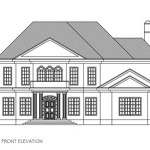Affordable Housing Planning and Appeal Act
The hypothetical Affordable Housing Planning and Appeal Act (AHPAA) represents a significant legislative effort to address the growing housing crisis. This act aims to streamline the development of affordable housing while also providing a clear and structured appeal process for stakeholders. Understanding the key provisions of the AHPAA is crucial for developers, municipalities, and community members alike.
Key Planning Provisions
The AHPAA introduces several key planning provisions designed to facilitate the development of affordable housing projects. These provisions work in concert to create a more predictable and efficient planning process:
- Streamlined Zoning Regulations: The act encourages municipalities to adopt streamlined zoning regulations specifically for affordable housing projects. This includes density bonuses, expedited permitting processes, and reduced parking requirements.
- Inclusionary Zoning Mandates: AHPAA introduces mandatory inclusionary zoning policies for certain municipalities, requiring a percentage of new developments to be designated as affordable housing.
- Statewide Housing Needs Assessment: The act mandates a regular statewide housing needs assessment to accurately identify areas with the greatest need for affordable housing, informing future development strategies.
- Financial Incentives for Developers: AHPAA provides financial incentives for developers who undertake affordable housing projects, including tax credits, grants, and low-interest loans.
- Community Land Trusts: The act promotes the establishment and expansion of community land trusts as a mechanism for preserving long-term affordability.
Appeal Process Overview
The AHPAA establishes a comprehensive appeals process to ensure fairness and transparency in affordable housing development decisions. This process provides a clear pathway for stakeholders to voice their concerns and seek redress:
- Standing to Appeal: The act clearly defines who has standing to appeal a decision related to an affordable housing project, including developers, community organizations, and neighboring property owners.
- Time Limits for Appeals: Strict time limits are imposed for filing appeals to prevent unnecessary delays in the development process.
- Mediation Requirement: Before a formal appeal can be filed, the AHPAA mandates a mediation process between the parties involved to encourage collaborative solutions.
Grounds for Appeal
The AHPAA specifies valid grounds for appealing a decision regarding an affordable housing project. This ensures that appeals are based on legitimate concerns and prevents frivolous challenges:
- Non-Compliance with AHPAA Regulations: Appeals can be filed if a project fails to comply with the specific regulations outlined in the AHPAA, such as density requirements or affordability criteria.
- Environmental Impacts: Significant environmental impacts not adequately addressed in the project’s environmental review can serve as grounds for appeal.
- Inconsistency with Local Comprehensive Plans: Projects that deviate substantially from a municipality's comprehensive plan can be challenged through the appeals process.
Appeal Hearing Procedures
The AHPAA outlines specific procedures for appeal hearings to ensure a fair and impartial review of the contested decision:
- Independent Hearing Officer: An independent hearing officer, appointed by a neutral body, presides over the appeal hearing to ensure objectivity.
- Evidence and Testimony: Both parties have the opportunity to present evidence and testimony relevant to their case.
- Written Decision: The hearing officer issues a written decision outlining the findings and conclusions, which may include upholding, modifying, or reversing the original decision.
Judicial Review
The AHPAA provides for judicial review of the hearing officer's decision. This final step in the appeals process allows for further scrutiny of the decision by the courts:
- Limited Scope of Review: The court's review is limited to determining whether the hearing officer's decision was arbitrary, capricious, or an abuse of discretion.
- Finality of Decision: The court's ruling on the appeal is generally considered final, providing closure to the dispute and allowing the project to proceed (or not) accordingly.
Impact on Local Governments
The AHPAA has significant implications for local governments, requiring them to adapt their planning and zoning processes to accommodate the act’s provisions:
- Zoning Ordinance Updates: Local governments must review and update their zoning ordinances to ensure compliance with the AHPAA's requirements, including streamlined permitting processes for affordable housing.
- Capacity Building: The act may require local governments to invest in capacity building to effectively implement the new regulations and manage the appeals process.
- Intergovernmental Collaboration: The AHPAA encourages increased collaboration between state and local governments in addressing regional housing needs.
Community Involvement
The AHPAA recognizes the importance of community involvement in affordable housing development. Public participation is a key element throughout the planning and appeals process:
- Public Hearings: The act mandates public hearings to provide opportunities for community members to voice their opinions on proposed projects.
- Access to Information: Local governments are required to provide easy access to information regarding affordable housing projects and the appeals process.
- Community Benefits Agreements: The AHPAA encourages the use of community benefits agreements to ensure that affordable housing projects contribute positively to the surrounding community.

Housing Crisis Act Implementation Los Angeles City Planning

Towns Cities Prepare For Zoning Law Changes Aimed At Boosting Housing Nh Business Review

Aers Must Post Bond To Fight Affordable Housing Project Massachusetts Lawyers Weekly

Illinois Affordable Housing Planning And Appeal Act Amendments Zrfm Law

River Forest Matters

Issue Brief Cgs 8 30g The Affordable Housing Land Use Appeals Procedure

Troutdale Says Tax Funded Housing Project Has A Problem Too Many Homes Sightline Institute

Affordable Housing Planned Around Atlanta S New Westside Park Planetizen News
Mayor Purzycki Helps The Delaware Affordable Housing Group Break Ground On Mcmullen Square Project City News Wilmington De

Inclusionary Affordable Housing Program Sf Planning








